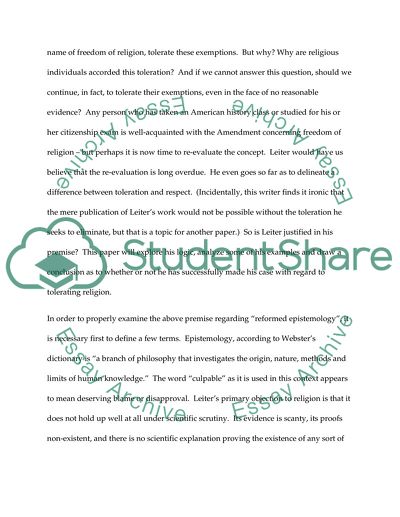Cite this document
(“Reformed Epistemology Insulates Religious Faith from Scientific Essay - 1”, n.d.)
Reformed Epistemology Insulates Religious Faith from Scientific Essay - 1. Retrieved from https://studentshare.org/philosophy/1438090-reformed-epistemology-insulates-religious-faith-from-scientific-scrutiny
Reformed Epistemology Insulates Religious Faith from Scientific Essay - 1. Retrieved from https://studentshare.org/philosophy/1438090-reformed-epistemology-insulates-religious-faith-from-scientific-scrutiny
(Reformed Epistemology Insulates Religious Faith from Scientific Essay - 1)
Reformed Epistemology Insulates Religious Faith from Scientific Essay - 1. https://studentshare.org/philosophy/1438090-reformed-epistemology-insulates-religious-faith-from-scientific-scrutiny.
Reformed Epistemology Insulates Religious Faith from Scientific Essay - 1. https://studentshare.org/philosophy/1438090-reformed-epistemology-insulates-religious-faith-from-scientific-scrutiny.
“Reformed Epistemology Insulates Religious Faith from Scientific Essay - 1”, n.d. https://studentshare.org/philosophy/1438090-reformed-epistemology-insulates-religious-faith-from-scientific-scrutiny.


